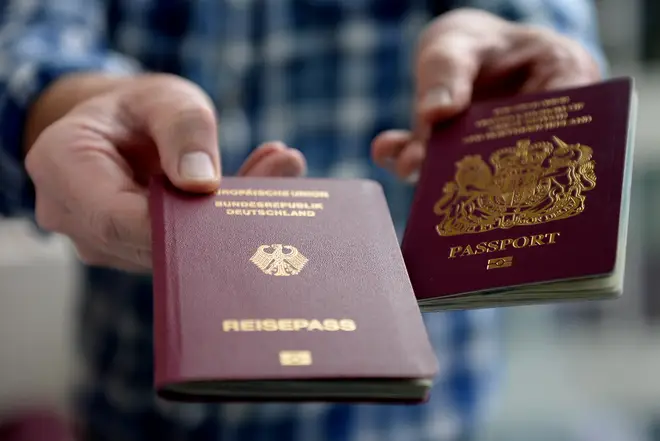
Oli Dugmore 4am - 7am
4 August 2020, 07:21

A wave of migration out of Britain to Europe has been sparked by Brexit and is similar to the result of a serious economic or political crisis, according to a new study.
Since the Brexit referendum migrations to EU countries has risen by 30 per cent joint research between the Oxford-in-Berlin partnership and the WZB Social Science Centre, also in Berlin, which studied OECD and Eurostat data.
There was a more than 500 per cent increase in UK citizens gaining an EU member state passport across the Continent, in Germany alone there was a 2,000 per cent increase.
The research showed that migration from the UK to EU states averaged 56,832 people per year from 2008-15, but climbed to 73,642 a year from 2016-18.

Boris Johnson: Post-Brexit Britain will put people before passports
The study, authored by Daniel Tetlow of Oxford-in-Berlin and WZB's Daniel Auer, compared the UK's data with "stable migration flows" among other EU nationals and found that Brexit had been the "dominant driver" of migration decisions by Britons since 2016.
"The study reveals the UK is facing a potential brain drain of highly-educated British citizens, who have decided to invest their futures in continental Europe," the study's authors said in a statement.
Dr Auer said: "These increases in numbers are of a magnitude that you would expect when a country is hit by a major economic or political crisis."
Additional data from Britons in Germany revealed they had shown "increased levels of risk-taking and impulsivity" in reaction to Brexit, with 57 per cent of interviewees reporting taking a "big risk" with their move, compared with just 24 per cent pre-referendum.
A majority of respondents had also agreed to a pay cut or wage freeze as part of their decision to leave Britain, whereas prior to the referendum the majority received a pay rise.
The largest rise in migration was to Spain, with France ranking second.